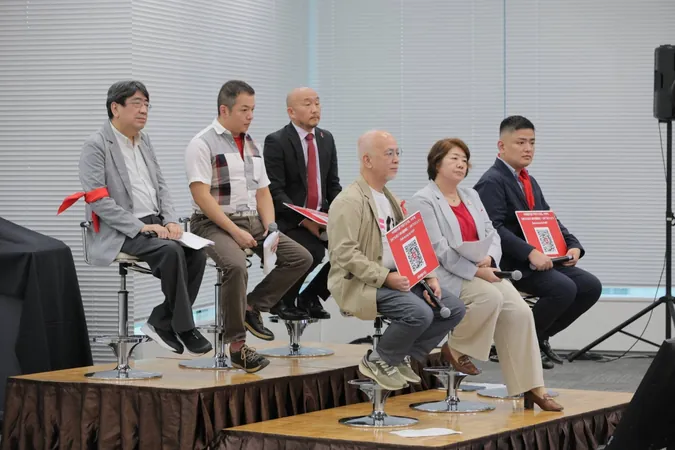
Despite Approval, HIV Prevention Drug Still Out of Reach for Many in Japan – What You Need to Know!
2024-10-01
Introduction
Japan has recently cleared the way for the approval of an HIV drug, but the journey to widespread access remains fraught with challenges. Experts and community leaders point to the high cost of the drug, coupled with a significant lack of awareness and understanding, as barriers that keep this essential medication out of reach for many individuals in need.
About Truvada
The drug in question is Truvada, manufactured by the U.S. pharmaceutical giant Gilead Sciences. Initially approved in the United States in 2012, Truvada has become a cornerstone in the global fight against HIV, particularly as a pre-exposure prophylaxis (PrEP) method. It is clinically proven to reduce the risk of contracting HIV during sexual activity by an astounding 99% when taken consistently, while also providing a protective effect of at least 74% for individuals who are intravenous drug users, as noted by the U.S. Centers for Disease Control and Prevention.
Access Issues in Japan
Yet, despite its global availability and proven efficacy, access to Truvada in Japan remains limited. Many potential users are deterred by the high costs associated with the medication, which are compounded by budget constraints in healthcare. Additionally, there is a pressing need for increased education and outreach to dispel myths about HIV and foster understanding about the importance of preventive measures like PrEP.
Call to Action
The Japanese government is under pressure to improve access to this life-saving medication, especially considering estimates that more than 10,000 individuals are currently living with HIV in Japan. Health advocacy groups are calling for greater public awareness campaigns and funding initiatives to help subsidize the costs of PrEP.
Conclusion
With HIV still a pressing public health issue, it’s crucial for both the government and healthcare providers to prioritize cutting through the barriers that stand between individuals and their access to effective preventive measures. The question remains: will Japan seize this moment to lead the way in championing health equity for its citizens? The answer could very well define the country's public health trajectory in the years to come.




 Brasil (PT)
Brasil (PT)
 Canada (EN)
Canada (EN)
 Chile (ES)
Chile (ES)
 España (ES)
España (ES)
 France (FR)
France (FR)
 Hong Kong (EN)
Hong Kong (EN)
 Italia (IT)
Italia (IT)
 日本 (JA)
日本 (JA)
 Magyarország (HU)
Magyarország (HU)
 Norge (NO)
Norge (NO)
 Polska (PL)
Polska (PL)
 Schweiz (DE)
Schweiz (DE)
 Singapore (EN)
Singapore (EN)
 Sverige (SV)
Sverige (SV)
 Suomi (FI)
Suomi (FI)
 Türkiye (TR)
Türkiye (TR)